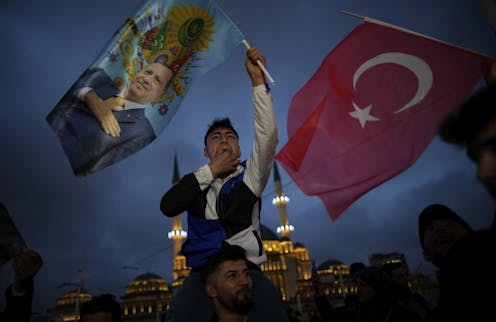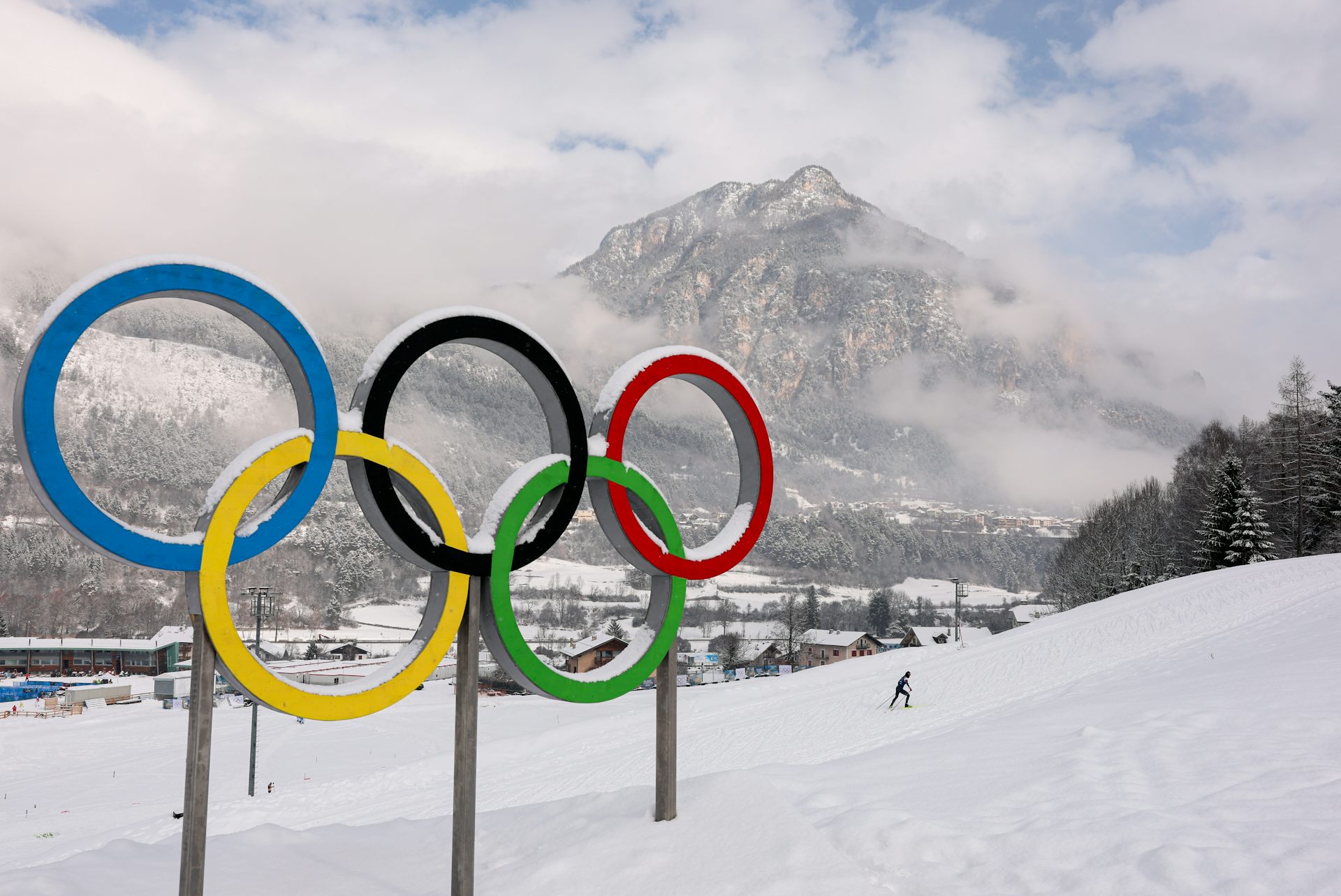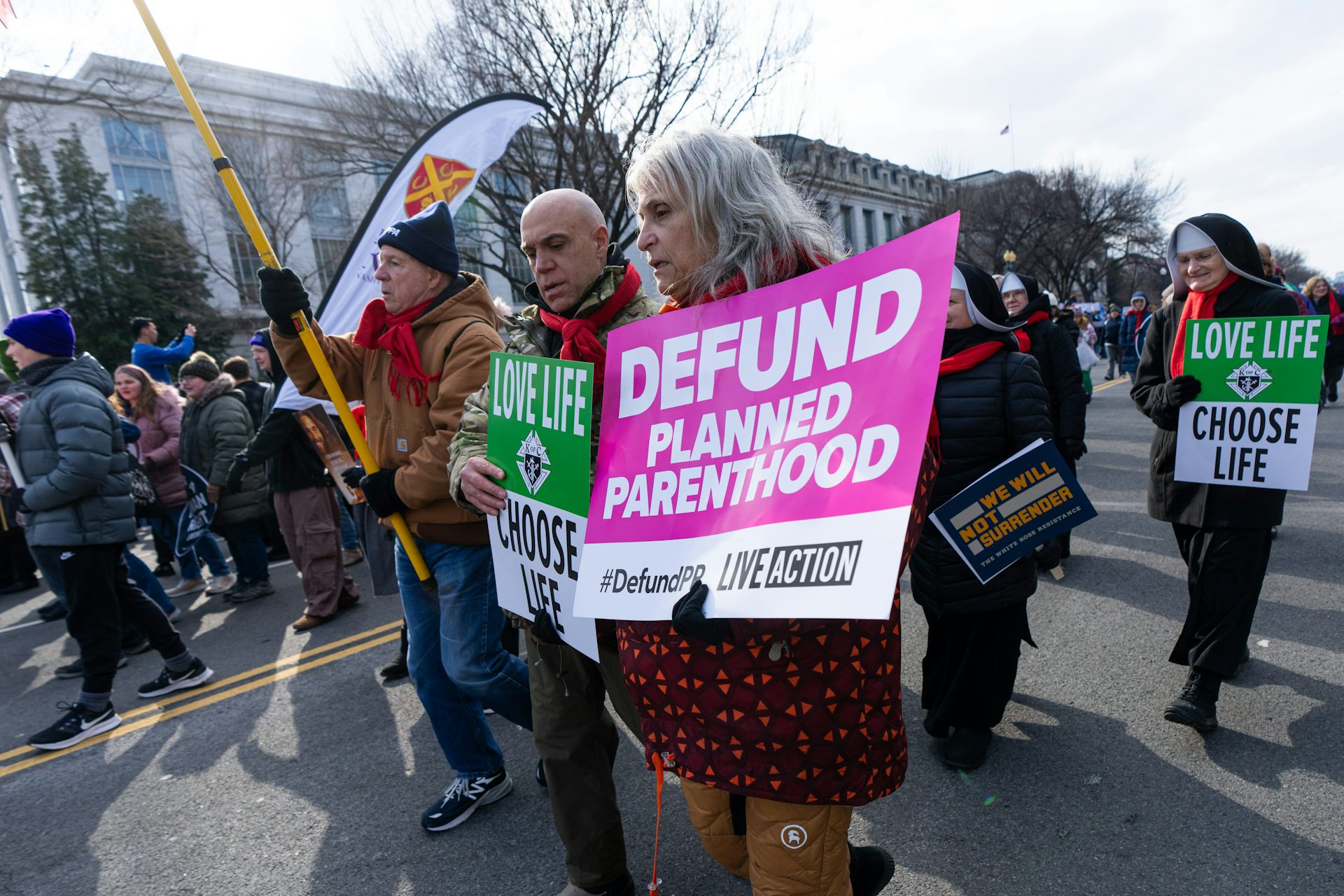What Erdoğan's reelection means for Turkey's political system, economy and foreign policy
Long-term Turkish leader Recep Tayyip Erdoğan was reelected with 52% of the vote. Will he push the country further down an autocratic, anti-West path?

Recep Tayyip Erdoğan has been reelected as president, ensuring that his term as leader of Turkey will extend to a quarter century.
The electorate returned Erdoğan to power in a runoff vote on May 28, 2023, with 52% of votes. But with 48% of voters siding with opposition leader Kemal Kılıçdaroğlu, Erdoğan will have to govern a divided nation in its centennial year.
As a professor of political science, I have analyzed Turkish politics for many years. The election provided a stark choice for Turkey’s voters: To end or extend Erdogan’s two-decade-long creep toward authoritarian-style governance. The decision to opt for the latter will dictate the country’s future in key ways, both domestically and in terms of its relationships with Western countries.
What’s next for Turkey’s political system?
Turkey had its first democratic election in May 1950. Since then it has had a multiparty competitive system, albeit one that has been sporadically interrupted by several military coups.
In the last 10 years, Erdoğan has taken Turkey down a more autocratic, one-man-rule style of governance. This has included restrictions on freedom of speech, freedom of the press and free assembly.
There is a little reason to believe that Erdoğan, enboldened by a fresh mandate, will reverse this trajectory.
Erdoğan won the election without making any promises about restoring or expanding rights and freedoms. Rather, his campaign signaled an intention to continue Turkey’s path toward being a conservative, religious state – a far cry from the vision of a modern, secular nation of founder Mustafa Kemal Atatürk.
In the run-up to the election, Erdoğan presented himself as the leader of religious conservatives – reciting the Quran in Hagia Sophia and addressing the people in another mosque following the Friday prayer. He also presented himself as a militarist leader, using battleships, drones and other weapons as campaign instruments and uploading a new Twitter profile photo with an air force pilot jacket. This posturing combined with his accusations that the opposition was collaborating with the PKK – a Kurdish separatist organization designated as a terrorist organization by Turkey – suggests that Erdoğan continues to promote Turkish nationalism and militarism.
The runoff victory for Erdoğan comes just two weeks after his Justice and Development Party and coalition partners won a parliamentary majority. It means that the opposition will have no executive or legislative power to restrict Erdoğan’s agenda.
Future relations with the U.S. and the West
Another important and consistent characteristic of Erdoğan’s presidential campaign was his criticism of the West in general and the United States in particular.
Erdoğan has accused the U.S. of a variety of perceived slights and Washington’s stance on issues affecting Turkey. In the past year, the Turkish leader has criticized over Washington’s support of the Syrian affiliate of the Kurdish PKK and protested the deployment of U.S. armored vehicles on two Greek Islands. Meanwhile, he has pointedly distanced himself from NATO allies on the issue of Russian sanctions, and instead talked up Turkey’s “special relationship” with Russia.
In mid-April, Erdoğan framed the election as a chance for voters to “send a message to the West” which, he claimed, was supporting the opposition candidate. “This country does not look at what the West says, neither when fighting terrorism nor in determining its economic policies,” he said.
Some of this was campaign rhetoric. And Erdoğan may make some attempts to heal rifts with Western countries, such as approving Sweden’s NATO membership bid – something he has to date refused to do over what Turkey sees as the Nordic country’s harboring of Kurdish terrorists.
But even such a concession would not amount to a transformation of Erdoğan’s deeply critical attitude to Western countries overall.
Indeed, the only factor that may force Erdoğan to return Turkey to a pro-Western position is Turkey’s ongoing economic crisis – which might necessitate the support of wealthy Western states and institutions.
What’s next for Turkey’s shaky economy?
Since 2018, the Turkish economy has shown symptoms of a crisis. Turkey’s currency, the lira, has fallen in value precipitously. In March, it fell to a new low of 19 to the dollar. Moreover, in 2022, the annual inflation rate surpassed 80%.
In order to win the elections, Erdoğan pursued several policies that appealed to voters but may further stress the economy and bleed national reserves. They include dropping the retirement age and giving a 45% pay raise to public workers.
Meanwhile, economic crisis and authoritarian policies have resulted in a “brain drain” with many educated young people moving to Western European countries.
If the election result leads to a further exodus of skilled, educated workers, then it will only weaken Turkey’s capability of confronting its economic crisis. Such thinking could nudge Erdoğan towards a rethink over policies that alienate younger, secular Turks.
It could also force Erdoğan to reevaluate his foreign policy. At present, the Turkish leader has looked to Qatar, Saudi Arabia and Russia for financial support. If this appears to be insufficient, Erdoğan may be forced to seek stronger relations with the United States to facilitate financial aid from the International Monetary Fund and other international organizations.
Erdoğan won the election without making any promises of change regarding domestic or foreign policy. But if the economic crisis he faces fails to abate, change may be forced upon him.
Ahmet T. Kuru does not work for, consult, own shares in or receive funding from any company or organisation that would benefit from this article, and has disclosed no relevant affiliations beyond their academic appointment.
Read These Next
Winter Olympians often compete in freezing temperatures – physiology and advances in materials scien
While physical exertion helps athletes stay warm, sweating can lead to dehydration.
Whether it’s yoga, rock climbing or Dungeons & Dragons, taking leisure to a high level can be good f
When a hobby becomes something larger, with a focus on improving skills and developing deep knowledge,…
Federal and state authorities are taking a 2-pronged approach to make it harder to get an abortion
Four years after the Supreme Court’s Dobbs ruling gave states the power to ban abortion, further restrictions…






